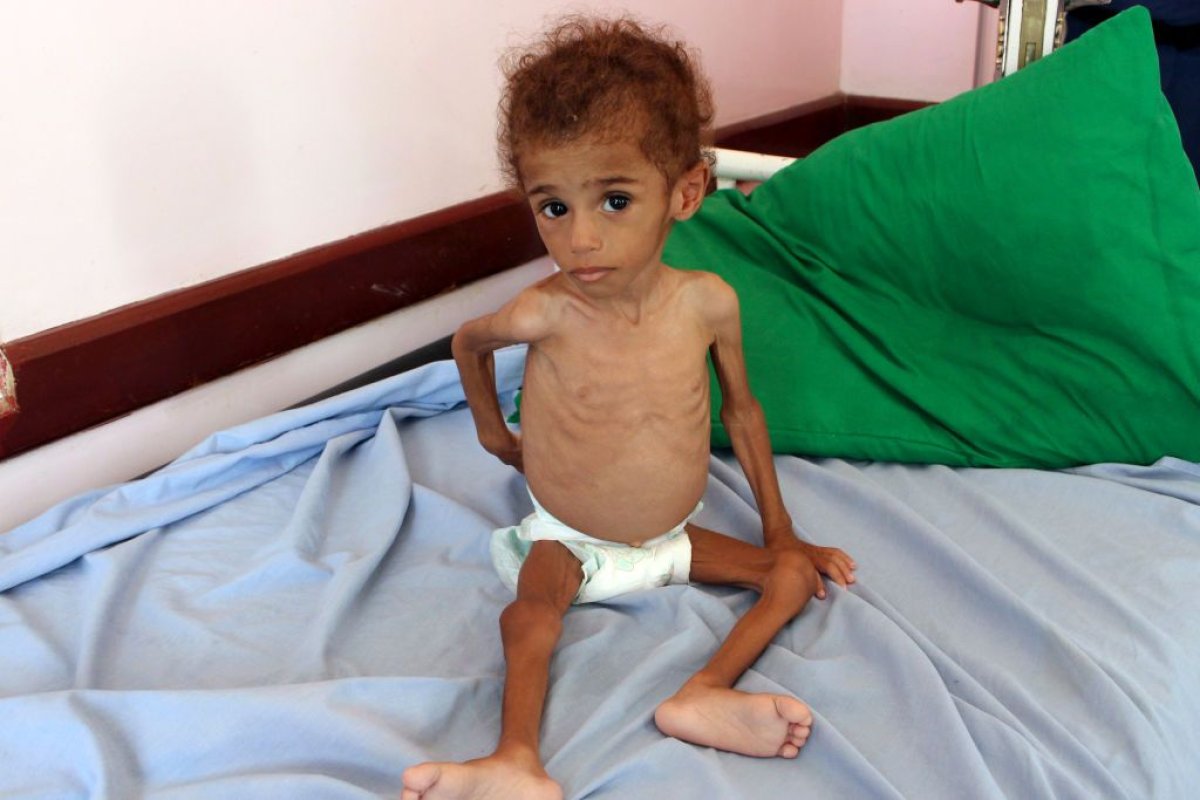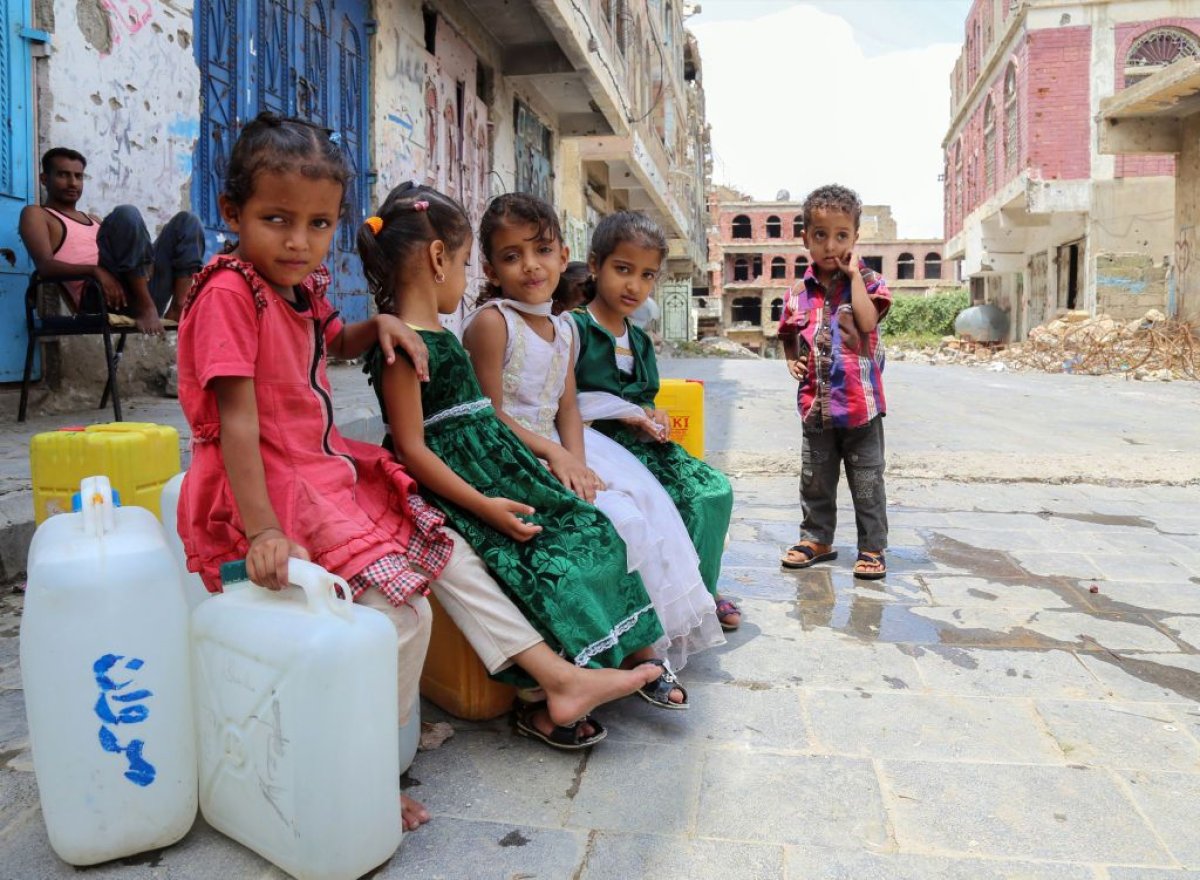Between 12 and 13 million people are at risk of starvation within the next three months if the Saudi Arabian-led coalition continues its bombing of Yemen, the United Nations has warned.
The Yemeni Civil War, which began in 2015, has led to what could likely become the worst famine in a century. Activists and U.N. monitors have long warned of the growing humanitarian crisis in the country, but the assault has continued.
"I think many of us felt as we went into the 21st century that it was unthinkable that we could see a famine like we saw in Ethiopia, that we saw in Bengal, that we saw in parts of the Soviet Union—that was just unacceptable," Lise Grande, the U.N.'s humanitarian coordinator for Yemen, told the BBC on Sunday. "Yet the reality is that in Yemen that is precisely what we are looking at," she warned.

The conflict began when Iran-backed Houthi rebels seized control of the majority of the country, including the capital, Sanaa. Saudi Arabia and its coalition allies have fought to support the internationally recognized government, which has gone into exile. The U.S. has provided military assistance to the coalition, expanding the support under the administration of President Donald Trump.
In three years, at least 10,000 people have died and millions have been displaced. Civilians have found themselves caught in the middle, trapped between airstrikes, land mines and bullets. The country is also suffering from the worst cholera outbreak in the world, with 10,000 new suspected cases each week, a crisis made worse due to sanitation facilities being destroyed by airstrikes.
"There's no question we should be ashamed," Grande said, directing her comments at the international community. "And we should, every day that we wake up, renew our commitment to do everything possible to help the people that are suffering and end the conflict."

Rights groups and humanitarian workers have frequently criticized the Saudi-led coalition for killing civilians in the conflict. A recent airstrike killed 15 people near the port city of Hodeidah and left some 20 others injured. In October 2016, Saudi warplanes bombed a community hall hosting a funeral in Yemen's capital, leaving at least 140 dead and hundreds wounded.
Despite international condemnation, the Saudi-led coalition has "failed to curb violations," according to a Human Rights Watch report published in August. The watchdog alleged that although Saudi Arabia claimed to be investigating war crimes, these claims could not be trusted.
"Governments selling arms to Saudi Arabia should recognize that the coalition's sham investigations do not protect them from being complicit in serious violations in Yemen," Sarah Leah Whitson, Middle East director at Human Rights Watch, said at the time.
The Saudi-led war in Yemen has become the world's largest humanitarian disaster. The recent disappearance and likely assassination of Jamal Khashoggi only underscores how urgent it has become for the United States to redefine our relationship with Saudi Arabia.
— Bernie Sanders (@SenSanders) October 15, 2018
With the recent high-profile disappearance of journalist Jamal Khashoggi, who was a critic of the war in Yemen and who went missing after entering the Saudi consulate in Istanbul, some Republicans and Democrats have argued that the U.S. should cut military aid to the kingdom. Many politicians had already raised concerns about the U.S. support of Riyadh amid the catastrophe facing civilians in Yemen.
"Certainly our involvement in Yemen with Saudi Arabia will be affected. That barely, that involvement barely survived in the last go-around with the National Defense Authorization Act. It certainly won't survive with this kind of accusation [of Saudi Arabia killing Khashoggi], if it is true," Republican Senator Jeff Flake told ABC's This Week.
Trump has voiced reluctance to stop selling the kingdom weapons however, saying the Saudis will simply buy from China or Russia instead.
Uncommon Knowledge
Newsweek is committed to challenging conventional wisdom and finding connections in the search for common ground.
Newsweek is committed to challenging conventional wisdom and finding connections in the search for common ground.
About the writer
Jason Lemon is a Weekend Editor at Newsweek based in Brooklyn, New York. Prior to taking on the editor role, Jason's reporting focused on ... Read more
To read how Newsweek uses AI as a newsroom tool, Click here.








